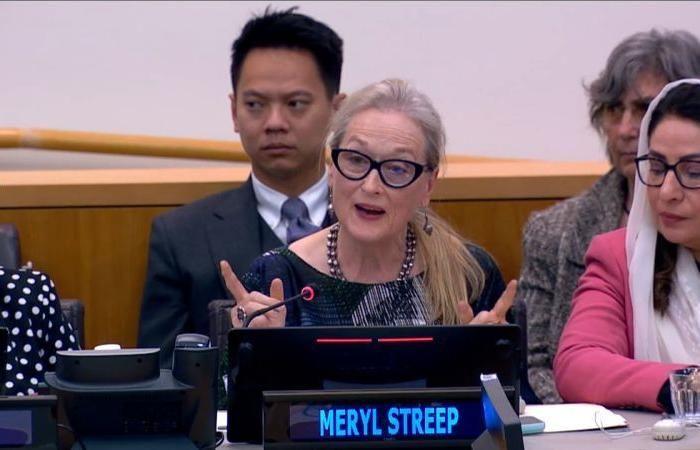CNN
—
When award-winning actress Meryl Streep spoke on the sidelines of the United Nations General Assembly about cats, squirrels and birds, she didn’t emphasize hunters and prey.
She compared these three animals to the women and girls of Afghanistan – and emphasized that animals have more rights.
“A cat can feel the sun on its face. She can chase a squirrel in the park… A bird can sing in Kabul, but not a girl, and a woman cannot sing in public. It’s extraordinary,” Streep said Monday. “It is a suppression of natural law. It’s strange.
As Streep’s comments ricocheted across social media, four countries came forward to announce “unprecedented” action against the ruling Taliban for their “systematic oppression” of women and girls.
Germany, Australia, Canada and the Netherlands on Thursday accused the hardline Islamist group of violating the Convention on the Elimination of All Forms of Discrimination Against Women (CEDAW).
The convention was ratified by the previous Afghan government in 2003, well before the Taliban regained power three years ago after the United States and its allies withdrew after 20 years of war.
“We know that the women and girls of Afghanistan are effectively being erased from public life by the various decrees issued by the Taliban,” Australian Foreign Minister Penny Wong told reporters in New York.
“The steps we are taking with Germany, Canada and the Netherlands are unprecedented.”
Since coming to power, the Taliban have gradually tightened restrictions on women and girls.
They are no longer allowed to work or study beyond the 6th year. Their bodies must be completely covered and they are forbidden to look at men with whom they have no blood or alliance relationship and vice versa.
The Taliban’s latest decrees from last month, cited by Streep, include requiring women and girls to remain silent in public.
Under the Taliban’s strict interpretation of Islam, a woman’s voice is considered intimate and therefore should not be heard singing, reciting or reading aloud.
This systematic oppression of women and girls, also alleged by the UN, has fueled a mental health crisis among Afghanistan’s female population.
According to health experts and human rights activists, depression among women and girls is on the rise, leading to an increase in suicides and suicide attempts.
Human Rights Watch says the legal approach by the four Western countries could lead to prosecutions before the International Court of Justice in The Hague.
As a signatory to CEDAW, Afghanistan should respond to the complaint.
However, the document was signed by the previous government and so far the Taliban have shown no signs of changing their position despite international condemnation.
In a statement released Thursday, a Taliban spokesperson said it was “absurd” to accuse Afghan leaders of gender discrimination.
“Human rights are protected in Afghanistan and no one is discriminated against,” said Hamdullah Fitrat Fitrat.
“Unfortunately, we are trying to spread propaganda against Afghanistan through the mouths of certain women and to give the impression that the situation is false. »
In New York, Streep told CNN’s Christiane Amanpour that she felt moved to speak out in support of Afghan women and girls because the Taliban’s actions are “like the erasure of an entire gender.”
Fawzia Koofi, a former Afghan MP, told Amanpour that the Taliban had “not understood that Afghanistan had transformed”.
Despite the Taliban’s efforts to erase them, she said women were fighting to make their voices heard.
After the Taliban banned women’s voices in public, some posted videos of themselves on social media, singing in defiance.
“It’s a sign of a different Afghanistan that the Taliban don’t understand,” Koofi said. “Today, every woman in Afghanistan is a journalist, every woman in Afghanistan is a television, speaking about her experience. »
Fereshta Abbasi, Afghanistan researcher at Human Rights Watch, said the action by Germany and its partners could mark the start of the path to justice for “gross human rights violations against women and girls.” Afghans” by the Taliban.
“It is vitally important that other countries show support for this action and engage Afghan women as the process moves forward,” she said.
CNN’s Ehsan Popalzai contributed reporting.






